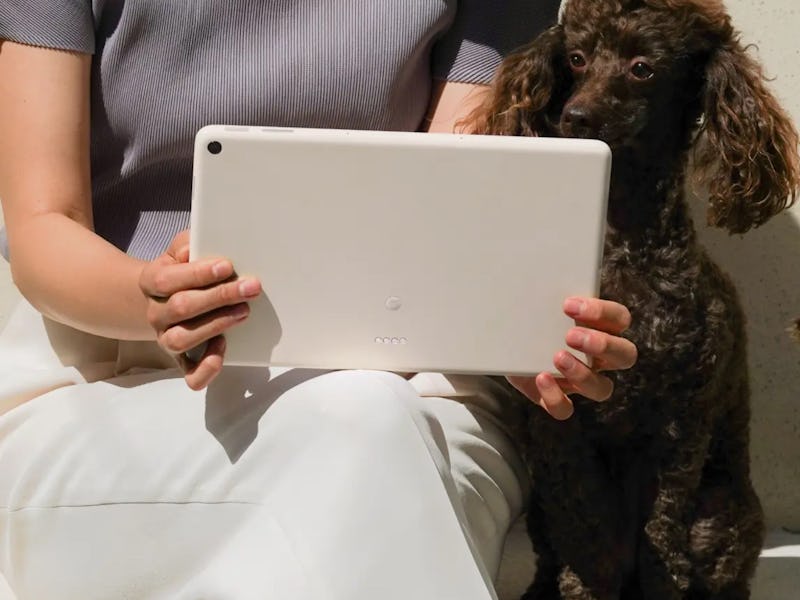4 Pixel Leaks That Reveal Google's Big Plans for I/O 2023
We now have a pretty good idea of what kind of hardware Google is launching at its I/O 2023 conference.

It looks like Google has a lot planned for I/O 2023. The search giant confirmed its yearly conference would be held on May 10 in March, and a steady stream of leaks before and after that have more or less revealed the most important announcements Google has in store for its developer keynote.
From a cheaper version of the Pixel 7 to an entirely new form factor, Google’s 2023 is filled with hardware announcements, but here’s what the company will likely introduce to the public next month.
The best entry-level Android phone
The Pixel 7a likes a lot like the Pixel 7, just with different color options.
What is there to say about the Pixel 7a? Google’s A-series phones typically perfect whatever flagship phone the company introduced the previous year, and the Pixel 7a, like the Pixel 6a, should successfully repeat the formula for 2023. You’ll get a repackaged Pixel 7 design, the Google Tensor G2, and exclusive Android software features, in a more economically approachable device.
Though this year, slightly less approachable, it seems. 9to5Google reports the Pixel 7a will launch on May 10 for $499 rather than the typical $449, and come in black, white, light blue, and “coral” (somewhere between pink and red), according to leaker Jon Prosser. The higher price is supposed to coincide with a better onboard camera sensor and support for wireless charging, which are two features the Pixel 6a skipped.
A long-awaited tablet
We’ve known what the Pixel Tablet looks like and does for a while now.
The Pixel Tablet was announced in 2022 as a renewed effort from Google to support tablets on Android. At the launch of the Pixel 7 and 7 Pro, the company revealed its big idea for the tablet: it essentially turns into a Nest Hub when you magnetically dock it on a speaker stand.
Leaks since then have filled in more details. The Pixel Tablet will ship with a Tensor G2 and 8GB of RAM onboard, according to 9to5Google. The tablet will be available in a grey-ish green and white, have two different storage options, and be sold in a bundle with its stand. The stand itself will also be the main charger for the tablet and be available for purchase separately for $129.
An official Google-y take on a foldable
The Pixel Fold is expected to lift the general look of Google’s mainline Pixel phones.
Pixel Fold rumors have been kicking around for years, but the book-shaped phone has suddenly become very real in the last few months. From what we now know, thanks to CNBC, the Pixel Fold is water resistant, with a durable hinge and a battery life of 24 hours (or 72 hours in Google’s Extreme Battery Saver mode).
The foldable is expected to have a 5.8-inch display on the front and a 7.6-inch display on the inside when opened. Renders picture the Pixel Fold as a sibling of the Pixel 7 with a prominent camera bar, but it’s not entirely clear if Google imagines the Fold as a high-end smartphone or some kind of in-between device like Microsoft originally pitched the Surface Duo as. One thing is clear; it’ll be pricey, maybe even matching Samsung’s $1,799 Galaxy Z Fold 4.
A lot of AI catchup
The big Google story of the moment is, of course, generative AI. The company launched Bard to minimal excitement and has been slowly updating its experimental chatbot with more skills, like the ability to code and solve complex math problems. According to the New York Times, due to a threat from Samsung that it might switch the default search engine on its smartphones from Google Search to Bing, Google is now also rapidly exploring a variety of AI-powered search features to keep its clients from switching.
Reportedly, those features sound like what the company is already trying with Bard. Conversational replies, search results more tailored to your interests, and responses that automatically take action for you, like coding something based on your requests. On the mobile side of things, Google seems to be interested in expanding how Pixel Call Screen streamlines phone calls, suggesting a conversational AI like Bard could stand in as a pseudo-secretary screening calls for you without your knowledge.
What software features Google ultimately rolls out to the public is a lot less certain than its growing list of hardware releases, but being put on its back foot by Microsoft seems like it couldn’t have come at a better time. Google already had an exciting year planned; now it just has to show off what it's been working on.
This article was originally published on